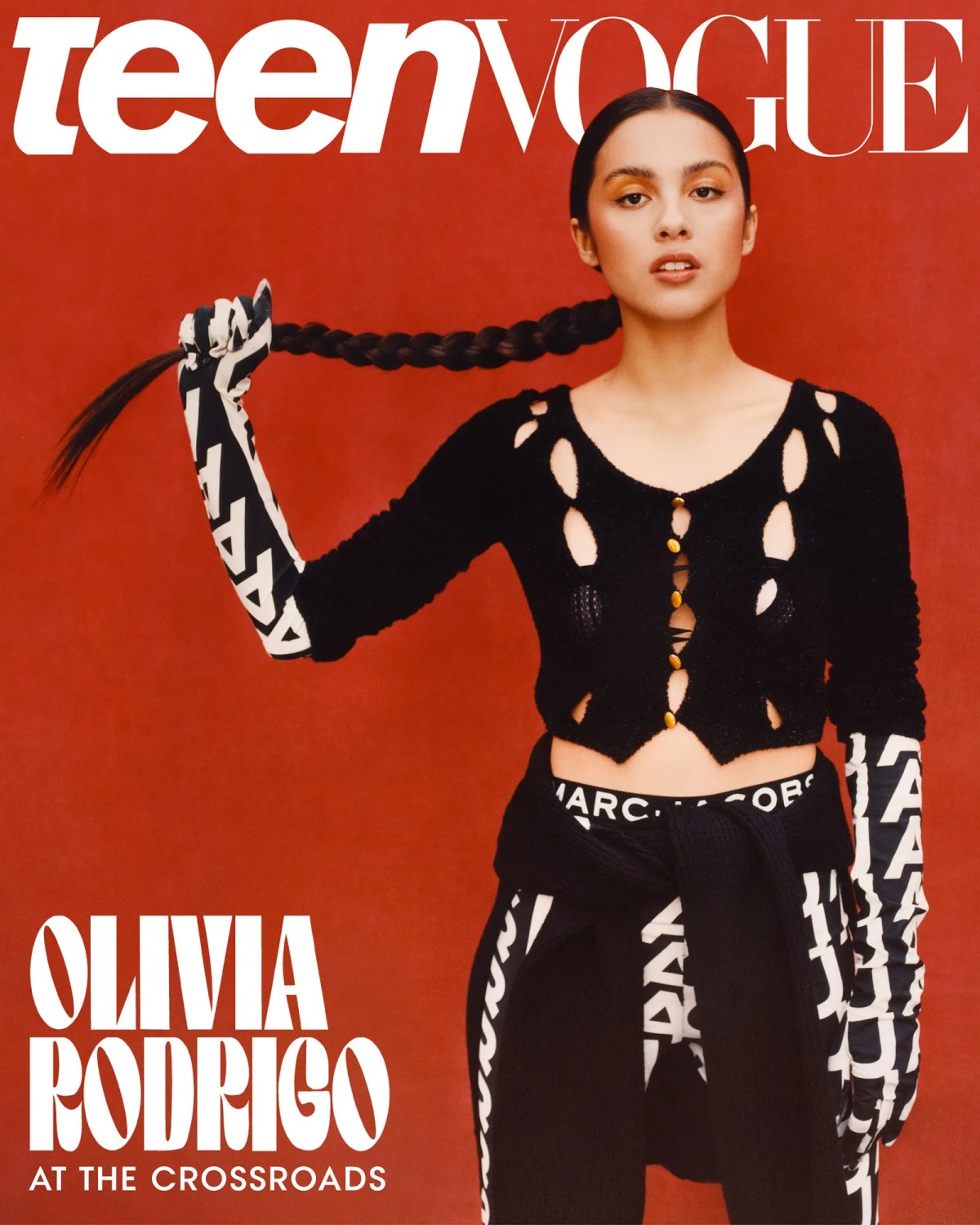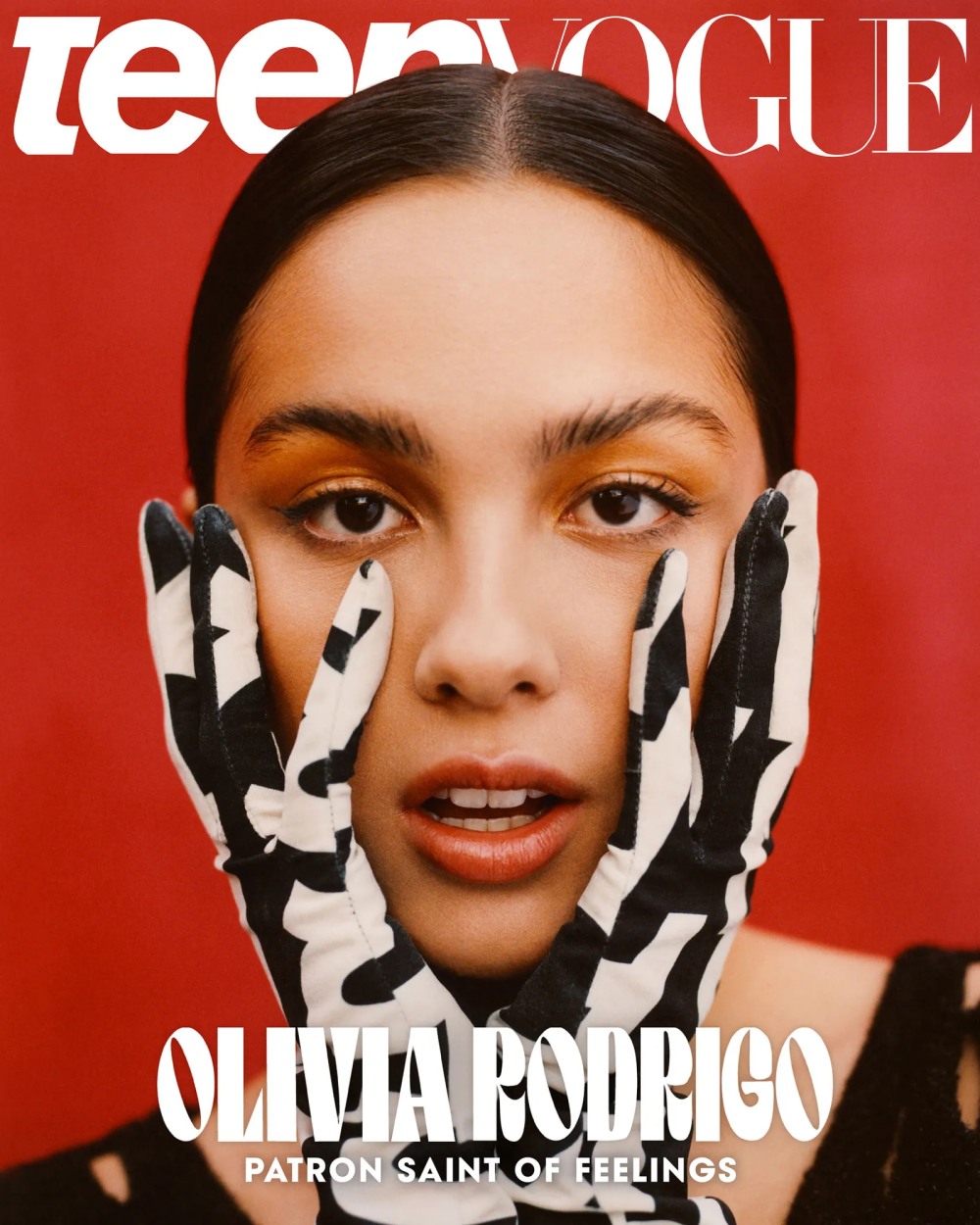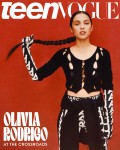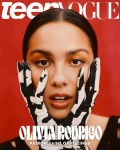Olivia Rodrigo covers the latest issue of Teen Vogue, a good reminder that she IS actually a teenager. She only turned 18 years old in February, just a month after “Drivers License” became one of the pop hits of the year. Olivia is a type-A personality in addition to being a teenager in an increasingly toxic world for teenage girls. Which has left her feeling complicated this year, a year full of crazy-highs and difficult lows. Olivia speaks about the controversies about her songs sounding too much like other artists’ works, and she also addresses her comments about being Filipino and how she grew up thinking that pop music was for “white girls.” Yes, this Teen Vogue piece is full of Olivia cleaning up some of her messes. Some highlights:
She feels misunderstood by her harshest critics: “I just feel like sometimes there’s so much noise and criticism and weird things going on in the world. I hope people know that deep down, all that I do is write songs and talk about how I feel, and that’s the most important thing to me. Everything else, I think, is not so important. A hard thing for me to grapple with when this whole thing started happening is just, anyone can say anything. You just can’t control…That goes for anyone, like girls going to high school.”
She feels like there is no room for error. “That’s something I’ve always felt confused over [while] growing up. When you’re in the industry, you’re sort of treated like a child but expected to act like an adult. That’s a really terrifying thought, to think that I’m not allowed to make any mistakes, because I think that’s how you grow as a person. I’m no different from any other 18-year-old out there. I’m definitely going to make a lot of mistakes in my life and in my career probably too. That’s just life.”
Accusations of erasure in her “pop music is for white girls” comments: “That was really sad for me to see. I really feel like my words were taken so out of context … What I was saying is that it was cool to see girls of Filipino heritage DM me and be like, ‘Oh, it’s so cool to see someone that looks like me, and that’s really empowering.’”
She’s still figuring out how to talk about race, ethnicity: “I think representation is all about adding. I don’t think it’s about taking anything away from anyone.”
On interpolation: “I think it’s disappointing to see people take things out of context and discredit any young woman’s work. But at the end of the day I’m just really proud and happy to say that my job is being a songwriter … All music is inspired by each other. Obviously, I write all of my lyrics from my heart and my life first. I came up with the lyrics and the melody for ‘good 4 u’ one morning in the shower.”
She’s watching the Britney Spears case: “It’s one example of this culture that so often tears down women in the spotlight for sport… As a society we definitely have to reexamine the way we treat women in the entertainment industry, and not just for ourselves — it’s unhealthy for young girls to be looking at all that stuff in the media. It paints a bad picture. It’s so frustrating to see young girls held to a completely different standard than other people. Social media is making it even harder for young girls to grow up. I don’t even think it’s about me being like, ‘Oh, I’m hurt to see people say mean things about me or my friends.’ It’s really toxic for young girls to open their Snapchat app and see the articles about young women who are just sharing their art and existing in the world, and watching them being torn apart for doing absolutely nothing.”
Interpolation, as defined by Teen Vogue and Olivia Rodrigo, is “when you record part of a song created by someone else and use it in a new way — is different from sampling someone else’s work in its original form.” I think I get what she’s saying but I’m not musical so I can’t really rephrase it. What do I know, anyway? As for what Olivia says about needing to make mistakes and needing to be given the freedom to grow and fail and try again… she’s absolutely right. And she’s right to point out that girls and women are the ones being held to those standards. Men – in music, or just in general – don’t have to be perfect, they don’t have to be role models, they just get to make art and make mistakes and everyone’s like “oh, he’s so real!”
Covers courtesy of Teen Vogue.















“A hard thing for me to grapple with when this whole thing started happening is just, anyone can say anything. You just can’t control…That goes for anyone, like girls going to high school.”
I was confused by what she’s trying to say here. I feel I need someone to literally translate it for me.
She might be referring to the time she topped the US and UK charts and a certain international fandom cyber bullied the hell out of her for having the nerve to release a song at the same time a Korean boy band did. It was brutal and unrelenting. I really feel like she kept a low profile when she could have been celebrating her accomplishments due to the online harassment.
There is a comment here about her “passing as white” but not according to K-pop fans: I believe “Olive Oil Girl” (reference to her less-than-white status) is the nicest nickname in can repeat about her here. They really can’t help themselves and I can’t explain the whole white-skin fetish thing – I don’t understand it.
She seems like she handled it ok. Good for her.
She’s nice and all but, having 1 Filipino great grand parent doesn’t exacly make you representative of the Filipino community… She’s totally white passing to me.
Same thing with Kid Laroi : dude is like 1/16th Kamilaroi…
It’s not just a great grandparent though, at least not from what I read. It’s her dad. She, like Zayn, is a light-skinned person with one white parent and one parent who is a poc. The internet’s reactions to them over this issue has been very different.
In a way, seeing girls and women screw up is scarier than seeing men and boys in your communities screw up. Because with girls you have to quickly get ready for abuse to be okay, and to hear from everywhere (instead of just one side) why it’s okay. There’s no safety net of being able to trust that things will only go so far, and you may have to wait years or sometimes decades for it to be safe to address any of it. Everything she said about misogyny and the need to take it seriously is so true.